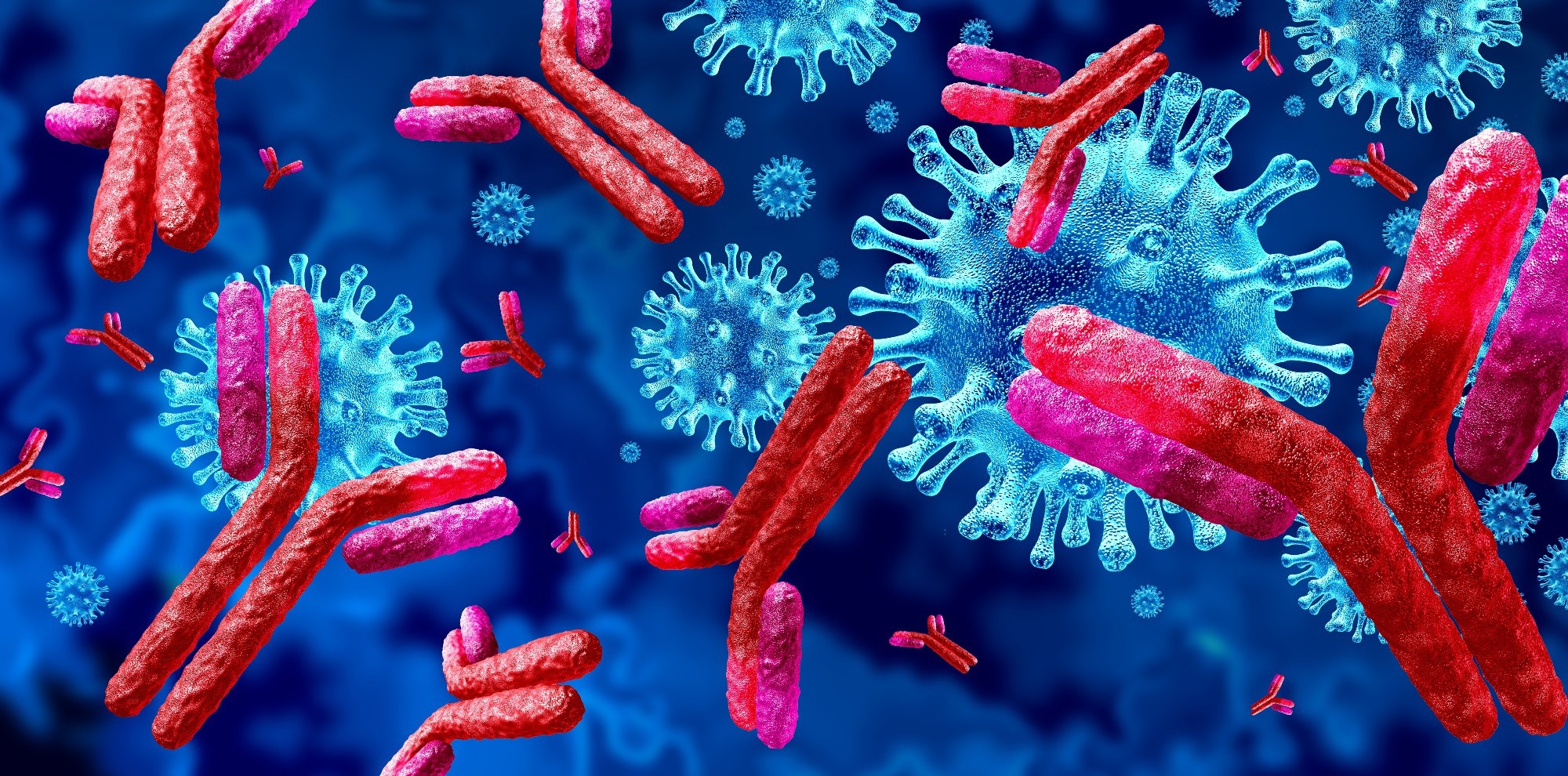Scientists from the Republic of Korea have analyzed B-cell receptor repertoires induced by an mRNA-based coronavirus disease 2019 (COVID-19) vaccine and found that somatic hypermutations in B-cell receptor heavy chain are responsible for broadening its specificity for unexposed antigens.
The study is currently available on the bioRxiv* preprint server.
 Study: An ancestral vaccine induces anti-Omicron antibodies by hypermutation. Image Credit: Lightspring / Shutterstock
Study: An ancestral vaccine induces anti-Omicron antibodies by hypermutation. Image Credit: Lightspring / Shutterstock

 *Important notice: bioRxiv publishes preliminary scientific reports that are not peer-reviewed and, therefore, should not be regarded as conclusive, guide clinical practice/health-related behavior, or treated as established information.
*Important notice: bioRxiv publishes preliminary scientific reports that are not peer-reviewed and, therefore, should not be regarded as conclusive, guide clinical practice/health-related behavior, or treated as established information.
Background
During the entire course of the COVID-19 pandemic, the genome of severe acute respiratory syndrome coronavirus 2 (SARS-CoV-2) has undergone many mutations. Some of these mutations, especially those located in the receptor binding domain (RBD) of viral spike protein, have provided a selective advantage, leading to the emergence of novel viral variants with improved fitness.
Among many variants, the most recently emerged omicron has acquired 15 mutations in the spike RBD, which has significantly increased the immune evasion ability of the virus. COVID-19 vaccines developed against the original Wuhan strain have shown significantly reduced neutralizing ability against the omicron variant.
With the worldwide deployment of booster vaccination, a significant improvement in vaccine efficacy against omicron has been observed in the general population. However, it remains unclear how repeated exposure to the ancestral spike protein through booster vaccination is associated with increased production of anti-omicron neutralizing antibodies.
In the current study, scientists have chronologically analyzed B-cell receptor (BCR) repertoires of individuals who have been immunized with three doses of the mRNA-based COVID-19 vaccine developed by Pfizer/BioNTech. They have mainly aimed at tracking the development of anti-omicron neutralizing antibodies.
Study design
The study was conducted on a total of 41 healthcare workers who received two doses of the Pfizer COVID-19 vaccine at an interval of three weeks and the third dose approximately nine months after the first dose.
Peripheral blood samples were collected from the participants at six time points, i.e., before vaccination, three times after each dose, and two times between the second and third doses. The blood samples were analyzed to measure antibody levels against the ancestral spike RBD and omicron spike RBD.
Characterization of omicron RBD-specific antibody clones
The scientists selected six vaccine recipients by reconstituting the in silico chronological BCR repertoires using next-generation sequencing and comparing the frequency of BCR heavy chain clonotypes listed in the CoV-Ab Dab17 database binding the SARS-CoV-2 spike protein.
In selected participants, they chronologically analyzed five omicron-specific-neutralizing BCR heavy chain clonotypes before and after the third vaccine dose.
The findings revealed that all five BCR heavy chain clonotypes are reactive to the ancestral RBD before the third dose. However, two BCR heavy chain clonotypes showed a similar level of reactivity to the omicron RBD. The other three clonotypes showed minimal or reduced reactivity to the omicron RBD before the third dose.
A significant increase in the number of somatic hypermutations was observed in BCR heavy chain clonotypes after the third dose, which drastically increased their affinity for the omicron RBD. A significant increase in the diversity of heavy chain complementarity-determining region 3 (CDR3) sequence was also observed after the third dose. This finding further justifies broadening of BCR specificity for the omicron RBD by booster vaccination.
In 46% of participants, public clonotypes of immunoglobulin G heavy-chain variable region 3-53/3-66 (IGHV3-53/3-66) and immunoglobulin Heavy Joining 6 (IGHJ6) RBD antibodies with concomitant reactivity to the ancestral and omicron RBDs were found. Somatic hypermutations and associated diversification of heavy chain CDR3 were responsible for the dual reactivity.
Study significance
The study describes that the third dose of the Pfizer COVID-19 vaccine encoding the ancestral spike RBD triggers the accumulation of somatic hypermutations in ancestral RBD-specific antibody clones. Furthermore, these somatic hypermutations trigger the reactivity of some of these clones toward omicron RBD, leading to significant induction in anti-omicron RBD antibody levels in the blood.
As mentioned by the scientists, somatic mutation-induced expansion of BCR specificity is a counter-protective mechanism against the immune escape of virus variants.

 *Important notice: bioRxiv publishes preliminary scientific reports that are not peer-reviewed and, therefore, should not be regarded as conclusive, guide clinical practice/health-related behavior, or treated as established information.
*Important notice: bioRxiv publishes preliminary scientific reports that are not peer-reviewed and, therefore, should not be regarded as conclusive, guide clinical practice/health-related behavior, or treated as established information.